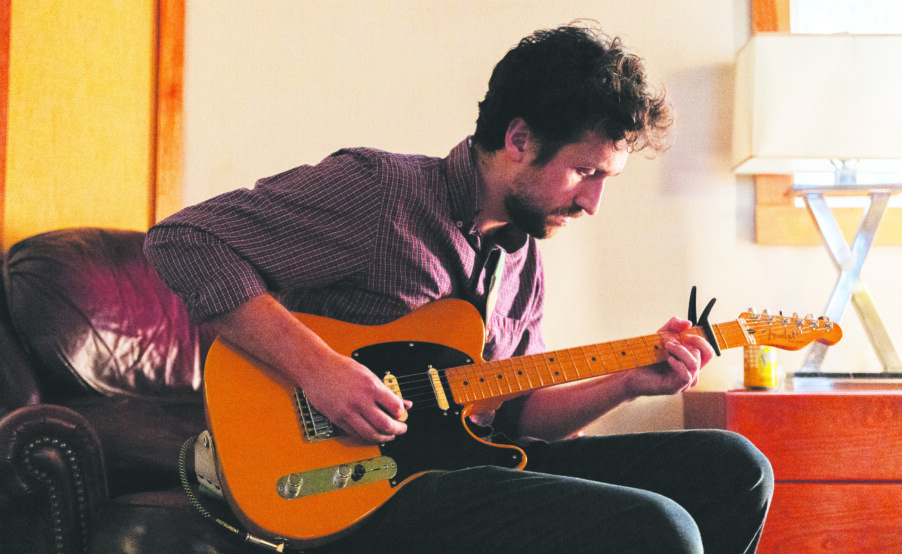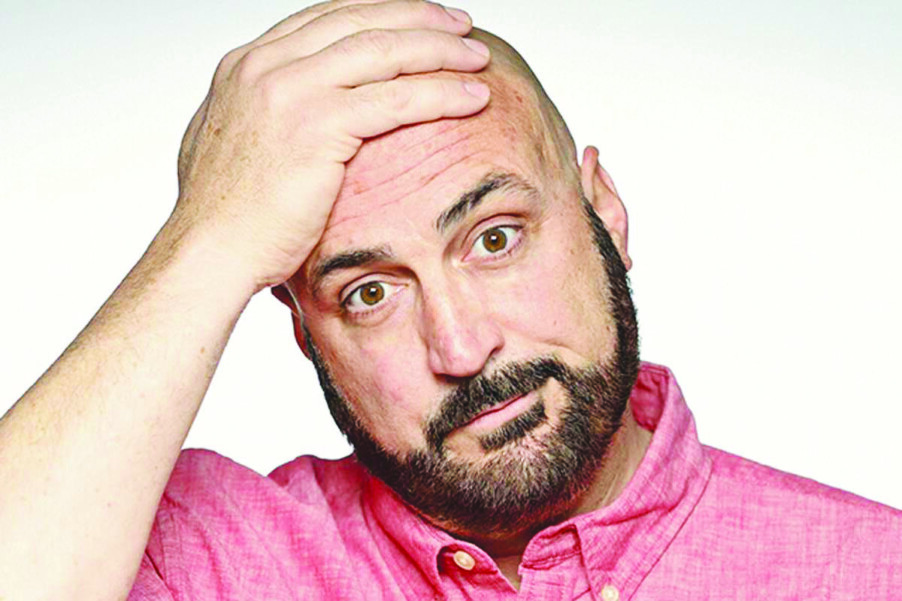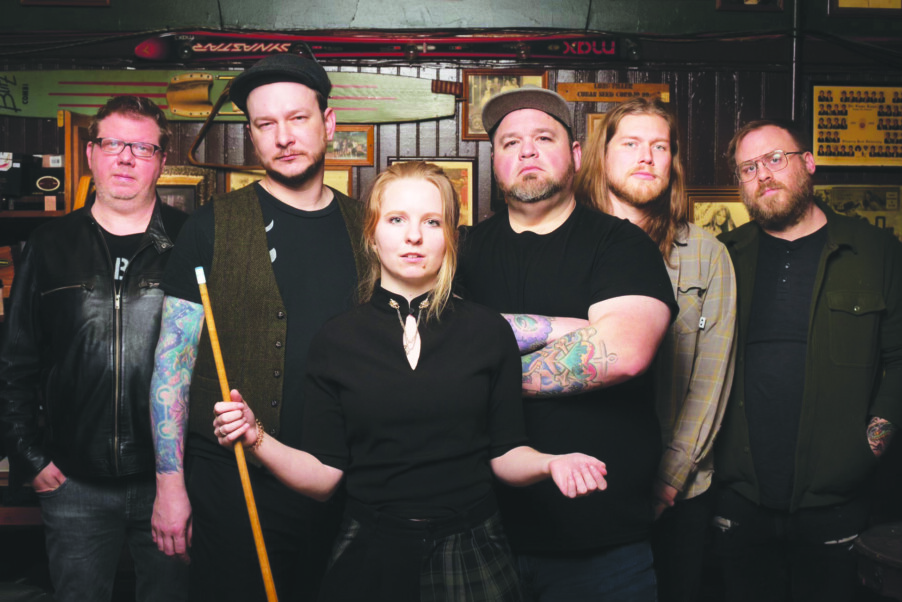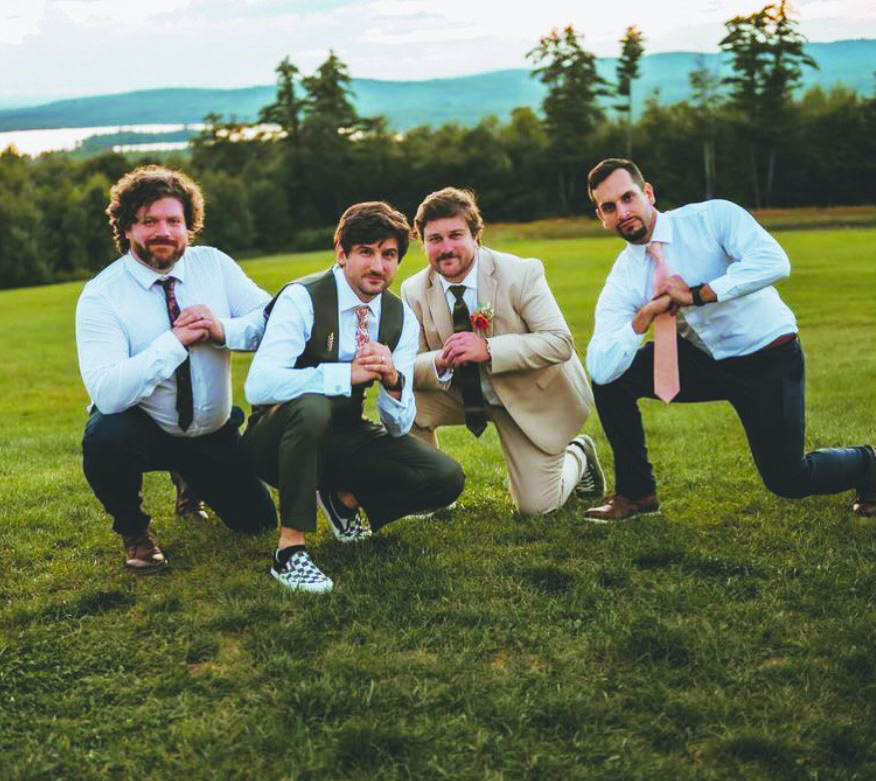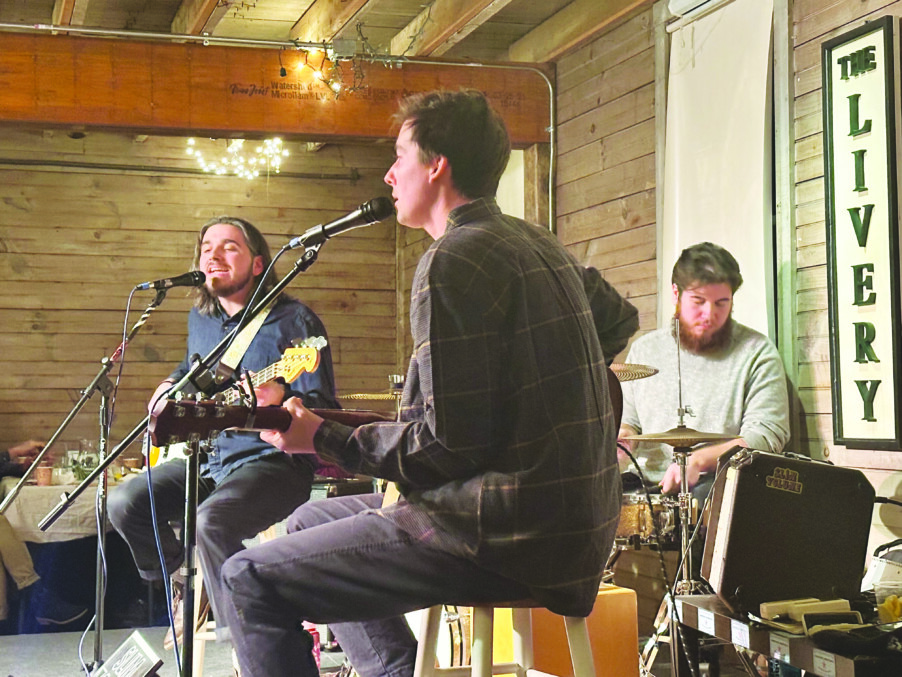St. Patrick’s Day nightlife options
For those looking to put on their Irish, however briefly, there are a variety of ways to approach St. Patrick’s Day 2024. Start with a pub crawl; there’s one in Manchester and another originating in downtown Nashua (see pubpioneers.com). There’s a traditional Irish music concert from the Spain Brothers at Manchester’s Rex Theatre on Friday the 15th, and a few places are celebrating on Saturday night.
Of course the best way is to lock in a favorite Irish public house, the kind with a St. Patrick’s Day countdown clock on the wall running 365 days a year. There are many of those on the list below, along with casual entrants who need a reason to add corned beef to the menu or dye their Bud green. They’re usually less crowded, but whatever the choice, Sláinte!
Friday, March 15
• Rex Theatre (23 Amherst St., Manchester, palacetheatre.org) An evening of Irish songs and stories from Manchester’s own The Spain Brothers.
Saturday, March 16
• Cara (11 Fourth St., Dover, 343-4390) Cara/Chameleon Club St. Patrick Eve Blowout Party, $10 at eventbrite.com.
• Hillsboro Moose Lodge (15 School St., Hillsborough, 464-6024) St. Paddy’s Day dinner and dance for members and bonafide guests. Dinner from 5 to 7 p.m, dance is 7 to 11 p.m. $15 dinner only, $20 dinner and dance.
• Pipe Dream Brewing (40 Harvey Road, Londonderry, 404-0751) Young Folk provide the music; raise a pint and sing along to the great tunes of old Ireland, and a bit of the new as well.
• Stark Brewing Co. (500 Commercial St., Manchester, 625-4444) The Bar Hoppers perform, with a bagpiper visit promised.
Sunday, March 17
• Alpine Grove (19 S. Depot Road, Hollis, 882-9051) Mike’d Up Comedy show follows Irish dinner at 6 p.m., $55 at eventbrite.com.
• Artisan Hotel (17 Via Toscana, Salem, tuscanbrands.com) Celtic Celebration $75: live music from The Rebel Collective, creative whiskey cocktails with a menu including pretzel bites, beer cheese, shepherd’s pie, croquettes, potato skins and a buffet with Guinness beef stew, corned beef, bangers & mash and more.
• Averill House Vineyard (21 Averill Road, Brookline, 371-2296) Gather in a private igloo for a four-course St. Patrick’s Day themed Mystery Dinner with wine pairing. Seating starts at 6:30 p.m. $299 (four people, additional guests $59 each) at exploretock.com.
• Barley House (132 N. Main St., Concord, 228-6363) All things Irish: music, dancing, beer, corned beef.
• bluAqua Restrobar (930 Elm St., Manchester, 836-3970) Acoustic BS debuts, offering a blue/green approach to the day.
• Casey Magee’s (8 Temple St., Nashua, 484-7400) Kieran Mcnally plays noon to 3 p.m., Acoustic Tandem 4 to 7 p.m., with Secondhand Band closing out at 8 p.m. Limited menu includes corned beef dinner, fish & chips, burgers, Reubens, Caesar salad, brownie sundae and select sides. Guinness and Bud Light promotions in the afternoon, $5 cover charge after 4 p.m.
• Copper Door (15 Leavy Drive, Bedford, 488-2677) Brunch at 11 a.m. with violinist Lilly Innella and a menu including potato leek soup, warm Reuben dip, corned beef hash and Guinness-braised corned beef.
• Copper Door (42 S. Broadway, Salem, 458-2033) Brunch at 11 a.m. with pianist Steve Aubert and a menu including potato leek soup, warm Reuben dip, corned beef hash and Guinness braised corned beef.
• CrowBar Hardware Store (38 Opera House Square, Claremont, 504-6085) Moonlighter Burlesque presents St. Patrick With Love Late(r) Show, $35.
• Derryfield (625 Mammoth Road, Manchester, 623-2880) D-Comp starts the music at 4 p.m.
• The Farm (1181 Elm St., Manchester, 641-3276) Traditional corned beef dinner, Guinness ice cream floats, and Irish step dancers at 1 p.m.
• Flannel Tavern (345 Suncook Valley Road, Chichester, 406-1196) Food and drink specials and live music all day. “Mr. Party” Brian Booth plays 12:30 to 3:30 p.m., local favorite Joe Pero is on 4 to 7.
• Foundation Kitchen + Bar (32 W. Broadway, Derry, 216-5590) Scott from Whiskey Business plays Irish sing-alongs and drinking songs starting at noon, with traditional Irish fare from 9 a.m. to 9 p.m. The Pipe and Drum Corps makes an appearance in the afternoon.
• Frogg Brewing (580 Sawyers Crossing Road, Swanzey, 547-7639) NH Music Collective presents Paul Driscoll, with refreshments from Voodoo Box Food Truck, Wine by Cabana Falls Winery, Sweets by Kupcakes & Kindness and Happy Girls Bakery, and a crazy hat contest.
• Fury’s Publick House (1 Washington St., Dover, 617-3633) Open at noon and there are specials all day, with Erin’s Guild playing traditional Irish music at 6 p.m.
• Harlow’s Pub (3 School St., Peterborough, 924-6365) Boiled Dinner and Guinness Beef Stew noon to 4 p.m.
• Hen House (85 S. Main St., Newton, 382-1705) Second Take provides the shamrock ’n’ roll.
• Holy Grail (64 Main St., Epping, 679-9559) Rasmyth Duo plays from noon to 3 p.m., Karen Grenier 4 to 7 p.m. and Kitchen Party 8 to 11 p.m., with Jameson drink specials, giveaways, raffles, contests and more.
• Kathleen’s Irish Pub (91 Lake Street, Bristol, 744-6336) All weekend long: toga party on the 15th, and the big day opens with a toast and sing-along of “Ireland’s Call” followed by food, fun, friends and music, including a set from O’Brien Clan.
• Kelley’s Row (417 Route 108, Somersworth, 692-2200) Music from Bradigan and Maggie’s Ramblers, along with Irish dancers and bagpipers, $15 cover charge. Three seatings for dining: 10 a.m., 1:30 p.m. and 5 p.m., with the usual traditional fare, along with Kelley’s Prime Rib and Guinness-braised short ribs. Reservations required.
• Makris (354 Sheep Davis Road, Concord, 225-7665) Taylor Hughes plays from 2 to 5 p.m. on Sunday, and there are St. Paddy’s day specials all weekend. Saturday’s party starts at 7 p.m. with Lichen. Throughout, there will be raffles and giveaways, a visit from the Easterseals Scarf Lady, Slap Me I’m Irish shots, and a jig dance contest.
• Mama McDonough’s (80 Airport Road, Keene, 338-0105) Young Folk hit the stage at 2 p.m. with craic, great Irish music and a few originals — quaff a pint or three and sing along.
• Marker 21 (33 Dockside St., Wolfeboro, 569-8668) DJ Dan Hayman spins on Saturday, with live music and food specials like Irish Cuban sandwich and loaded crisps on the big day.
• Merrill’s Tavern (85 Country Club Drive, Atkinson, 382-8700) Hoppy Duo offering Irish music from 1 to 5 p.m. Food includes cod cakes & beans, corned beef boiled dinner, bangers & mash and shepherd’s pie, along with special beverages like a Chase the Rainbow cocktail — crème de menthe, white chocolate liqueur and vodka.
• Murphy’s Taproom (494 Elm St., Manchester, 644-3535) Dancing Madly Backwards hits the stage at 7 p.m., after all-day celebrating.
• Newfound Lake Inn (1030 Mahew Turnpike, Bridgewater, 744-9111) St. Patrick’s Day dinner on March 16 featuring an Irish-themed menu and live music by WhiteSteer Duo. Open from 3 to 9 p.m. St. Patrick’s Day brunch from 10 a.m. to 1 p.m. with an Irish twist. Bottomless mimosas and live music by Dan Fallon.
• Northwoods Brewing (1334 First NH Turnpike, Northwood, 942-6400) A twofer, with St. Patrick’s Day trivia and karaoke hosted by Liquid Knowledge.
• Old Salt (409 Lafayette Road, Hampton, 926-8322) Open at 11 a.m. with live entertainment all day, along with corned beef and cabbage and green beer.
• Olde Kilkenny Pub (30 Middle St., Milford, 283-6632) At mid-day, a dollar from every Irish pint sold (Guinness, Harp, Smithwick’s, Guinness 0.0) will be donated to The Memo Fund.
• Patrick’s (18 Weirs Road, Gilford, 293-0841) Music from the Quincy Brothers at noon, Bagpipers at 3 p.m. and DJ Eric Grant from 4 to 8 p.m., with traditional dishes, seven Irish whiskies to choose from, and a lot more.
• Peddler’s Daughter (48 Main St., Nashua, 821-7535) This real deal Irish pub opens at 8 in the morning with a kegs & eggs Irish Breakfast, corned beef and other Irish favorites, with music from the Rambin’ Rogues Band starting at 10 a.m. The Jim Coyle & Joe Kessler Band follows, from 3 to 7 p.m.
• Press Room (77 Daniel St., Portsmouth, 431-5186) Bangers and Mash-Ups with DJ Chad Banks at 8 p.m.
• Saddle Up Saloon (92 Route 125, Kingston, 369-6962) Live music performed by Half Price Whiskey starts at 1 p.m. Corned beef & cabbage special plus green beer.
• Salt hill Pub Lebanon (2 W. Park St., Lebanon, 448-4532) This true Irish “local” begins with a ceremonial first pint at 9 a.m. and offers a full Irish breakfast, traditional menu, music from Rebel Collective (9 a.m.), Atlantic Crossing (1 p.m.), High Drive (5 p.m.) and O’Hanleigh (8:30 p.m.), Irish dancing, photo booth, the drive-by-bagpiper, Guinness Girls, cash and other prizes at each ShP, with an Ireland trip-for-two grand prize awarded pub-wide.
• Salt hill Pub Newport (58 Main St., Newport, 863-7774) Same deal as the flagship Lebanon location, with the following musical schedule: O’hAnleigh at 9 a.m., Rebel Collective at 2 p.m.
• Salt hill Pub Sunapee (1407 Route 103, Newbury, 763-2667) At the “Shanty” — named after the Sunapee pub formerly in the same location owned by ShP founders Josh and Joe Tuohy’s parents — it’s the same deal as the flagship Lebanon location, with the following musical schedule: Jordan Tirrell-Wysocki Trio at 9:30 a.m.; O’hAnleigh at 2 p.m.; Atlantic Crossing at 8 p.m.
• Shaskeen (909 Elm St., Manchester, 625-0246) Kicking off at 5:30 a.m. with breakfast served through 11 a.m. and first pints at 6 a.m. Live music starts with Rockspring at 1 p.m. with The Rebel Collective playing from 8 p.m. to close.
• Stoned Wall Bar & Grill (37 Manchester St., Manchester, 698-2049) St. Patrick’s Day Drag Show starts at 4.
• Strange Brew (88 Market St., Manchester, 666-4292) At 9 a.m. it’s Andy Happel, at 1 p.m. it’s Jake Pardee, at 3 p.m. Thanks to Gravity performs, and at 7:30 p.m. NHPA Pipes & Drums stops by, then Jake Pardee & Friends take it to the finish line starting at 8:30 p.m.
• Throwback Brewery (7 Hobbs Road, North Hampton, 379-2317) St. Patrick’s Day brunch and fiddler’s jam as Melissa Caron & Ellen Carlson join forces from 10:30 a.m. to 12:30 p.m. Listen and jam with them while enjoying farm-to-table food and drinks, including menu and cocktail specials aligned with the occasion.
• Toll Booth Tavern (740 Second NH Tpke N., Francestown, 588-1800) Sheepdip playing classic shamrock ’n’ roll favorites sprinkled with some traditional Irish favorites starting at 3 p.m.
• Tupelo Music Hall (10 A St., Derry, 437-5100) St. Patrick’s Day with the Glengarry Bhoys; show starts at 8 p.m. Tickets $39 at tupelohall.com.
• Village Trestle (25 Main St., Goffstown, 497-8230) Corned beef cabbage dinner and Reubens all day with live music from D-Comp at 11 a.m. and Bob & Amberly at 3 p.m. Giveaways and Irish drink menu, special desserts with Amberly’s Guinness Stew too.
• Wild Rover (21 Kosciuszko St., Manchester, 669-7722) Recently completed renovations should boost the already venerable pub’s St. Paddy’s Day celebration.

